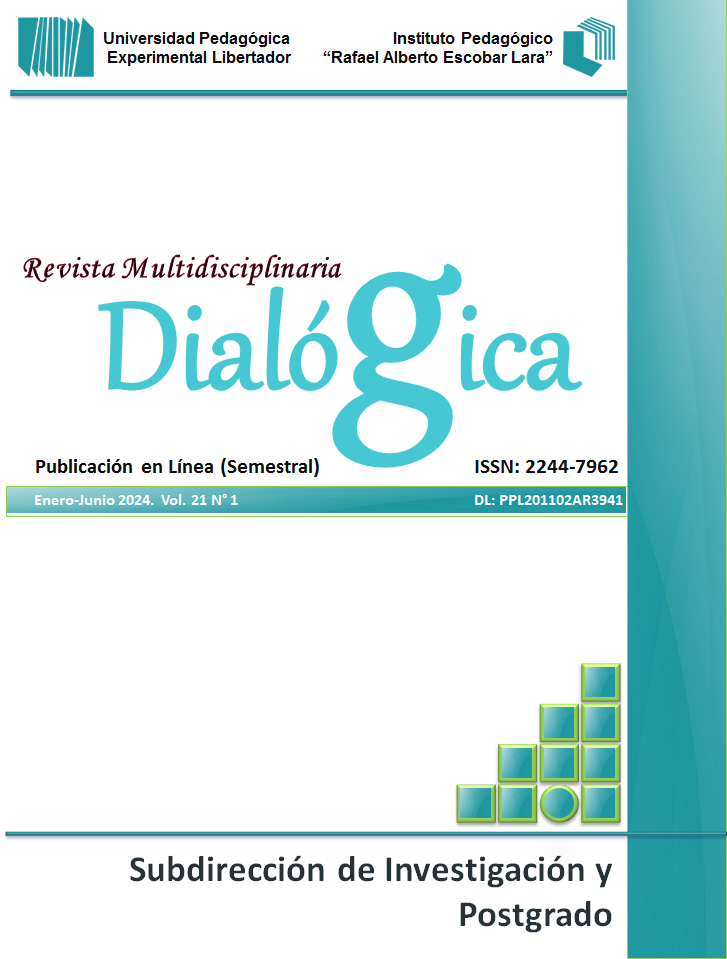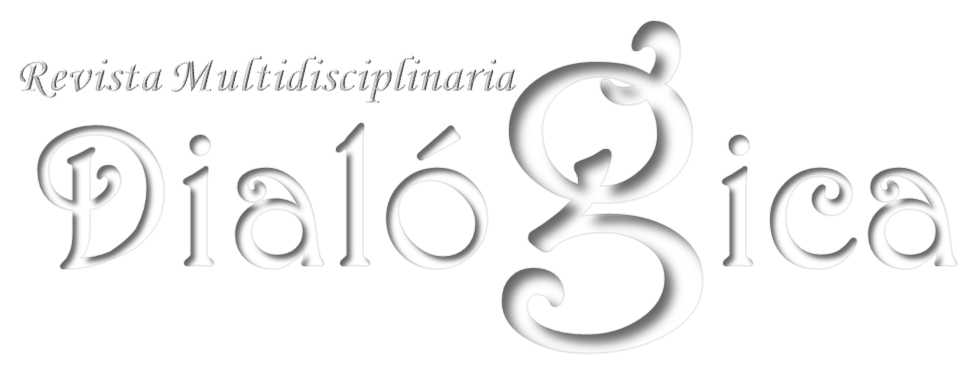PUNITIVE SOCIETY AND SCHOOL COEXISTENCE. PUNISHMENT IN CURRENT SCHOOL
DOI:
https://doi.org/10.56219/dialgica.v21i1.2937Keywords:
Childhood, punishment, school violence, school coexistenceAbstract
There are numerous investigations on violence in the school environment. In Colombia, however, little has been discussed about the forms that punishment has taken after the promulgation of Law 1620 of 2013, which regulates school coexistence. In this essay, the legal forms that guide these regulations are reviewed. We reflect on the possible implications of recording data generated by situations that affect coexistence in the Unified Information System for School Coexistence (SIUCE). It is discussed how punishment has been modified in the discourse of school violence and highlights analogies between the tactics of the punitive society and the disciplinary practices in current schools. It is proposed that these disciplinary practices produce subjectivities regarding children and young people, similar to the dynamics of the judicial field, in addition to raising questions typical of critical thinking in the vision of teachers.
References
Aguilar-Morales, J.E. (2011). La evaluación educativa. Asociación Oaxaqueña de Psicología A.C.
Amador, J. C. (2012). Condición infantil contemporánea: hacia una epistemología de las infancias. Pedagogía y Saberes, (37), 73-87. https://www.redalyc.org/pdf/6140/614064827007.pdf.
Ayala-Carrillo, M. (2015). La violencia escolar: un fenómeno complejo. Ra Ximhai, 11(4), 493-509. https://www.redalyc.org/pdf/461/46142596036.pdf. DOI: https://doi.org/10.35197/rx.11.01.e2.2015.36.ma
Baumgarten, E., Simmonds, M., Mason-Jones, A. J. (2022). School-based interventions to reduce teacher violence against children: a systematic review. Child Abuse Review, 32(4), e2803. https://doi.org/10.1002/car.2803. DOI: https://doi.org/10.1002/car.2803
Cajiao, F. (1994). Poder y justicia en la escuela colombiana. Fundación FES.
Cheruvalath, R. y Tripathi, M. (2015). Secondary school teachers’ perception of corporal punishment: A case study in India. The Clearing House: A Journal of Educational Strategies, Issues and Ideas, 88(4), 127–132. https://doi.org/10.1080/00098655.2015.1045821. DOI: https://doi.org/10.1080/00098655.2015.1045821
Congreso de Colombia. (1991). Ley 12 de 1991. Por medio de la cual se aprueba la Convención sobre los Derechos del Niño a adoptada por la Asamblea General de las Naciones Unidas el 20 de noviembre de 1989. Gobierno de Colombia.
Congreso de la República de Colombia (marzo 15, 2013). Ley 1620. Por la cual se crea el Sistema Nacional de Convivencia Escolar y Formación para el Ejercicio de los Derechos Humanos, la Educación para la Sexualidad y la Prevención y Mitigación de la Violencia Escolar. https://oig.cepal.org/sites/default/files/2013_ley1620_col.pdf.
Dubet, F. (1998). Les figures de la violence à l’école. Revue Française de Pédagogie, 123(1), 35–45. https://doi.org/10.3406/rfp.1998.1125. DOI: https://doi.org/10.3406/rfp.1998.1125
Dupper, D.R. y Montgomery, A.E. (2008). Corporal punishment in U.S. public schools: A continuing challenge for school social workers. Children & Schools, 30(4), 243–250. https://doi.org/10.1093/cs/30.4.243. DOI: https://doi.org/10.1093/cs/30.4.243
Foucault, M. (1996a). La vida de los hombres infames. Editorial Altamira.
Foucault, M. (1996b). La verdad y las formas jurídicas. Editorial Gedisa.
Hecker, T., Goessmann, K., Nkuba, M. y Hermenau, K. (2018). Teachers’ stress intensifies violent disciplining in Tanzanian secondary schools. Child Abuse & Neglect, (76), 173–183. https://doi.org/10.1016/j.chiabu.2017.10.019. DOI: https://doi.org/10.1016/j.chiabu.2017.10.019
Jiménez, A. (2008). Historia de la infancia en Colombia: crianza, juego y socialización, 1968-1984. Anuario Colombiano de Historia Social y de la Cultura, (35), 155-188. https://www.redalyc.org/pdf/1271/127112583005.pdf.
Martínez Boom, A. (2012). Verdades y mentiras sobre la escuela. Alcaldía Mayor de Bogotá. IDEP.
MEN. (2013). Ley 1620 de convivencia escolar. Ministerio de Educación Nacional. http://www.mineducacion.gov.co/1759/articles-327397-archivo-pdf.
MEN. (2022). Actualización de Manuales de Convivencia Escolar. https://www.educacionbogota.edu.co/
Narodowski, M. (1994). Infancia y poder: la conformación de la pedagogía moderna. Aique Grupo Editor.
Narodowski, M. (2008). La inclusión educativa. Reflexiones y propuestas entre las teorías, las demandas y los slogans. REICE. Revista Iberoamericana sobre Calidad, Eficacia y Cambio en Educación, 6(2), 19-26. https://www.redalyc.org/pdf/551/55160203.pdf. DOI: https://doi.org/10.15366/reice2008.6.2.002
Nóvoa, A. (1999). O passado e o presente dos professores [Past and Present of Teachers]. In A. Nóvoa (Org.), Profissao Professor [Job Teacher] (2nd ed., pp. 13-34). Porto.
Ocampo, A. y Vercellino, S. (2019). Ensayos críticos sobre Psicopedagogía en Latinoamérica. Centro de Estudios Latinoamericanos de Educación Inclusiva.
ONU. (1989). Convención Sobre los Derechos del Niño. 20 de noviembre de 1989. ONU. https://www.un.org/es/events/childrenday/pdf/derechos.pdf.
ONU. (2015). Los derechos del niño en la Agenda 2030. https://violenceagainstchildren.un.org/es/content/los-derechos-del-ni%C3%B1o-en-la-agenda-2030
Parra Sandoval, R., González, A., Moritz, O. P., Blandon, A. y Bustamante, R. (1992). La escuela violenta. Fundación FES-Tercer Mundo Editores.
Rodriguez, P. y Manarelli, M. (2007). Historia de la infancia en América Latina. Universidad Externado.
Schreiber, M. E. (1999). Time-Outs for Toddlers: Is Our Goal Punishment or Education? Young Children, 54(4), 22-25. https://eric.ed.gov/?id=EJ590131.violence_injury_prevention/violence/world_report/en/ summary_en.pdf?ua
World Health Organisation (WHO). (2002). World report on violence and health: Summary. Geneva. [Online]. https://www.who.int/.
Wruck, J., Mouriño, J. J. y Stobäus, C. D. (2016). Profession Teacher Is Related to Lifelong (Re)Learning. Creative Education, 7(12): 1765-1772. DOI: 10.4236/ce.2016.712180. DOI: https://doi.org/10.4236/ce.2016.712180
Downloads
Published
How to Cite
Issue
Section
License
Copyright (c) 2024 Luz Stella Mosquera Monroy

This work is licensed under a Creative Commons Attribution-NonCommercial-ShareAlike 4.0 International License.


 @revistadialogica
@revistadialogica DialogicaUPEL
DialogicaUPEL RevistaDialogicaUPELMaracay
RevistaDialogicaUPELMaracay dialógicaupel@gmail.com
dialógicaupel@gmail.com dialogicaupel.blogspot.com
dialogicaupel.blogspot.com https://issuu.com/dialogicaupel
https://issuu.com/dialogicaupel https://revistas.upel.edu.ve/index.php/dialogica/
https://revistas.upel.edu.ve/index.php/dialogica/









